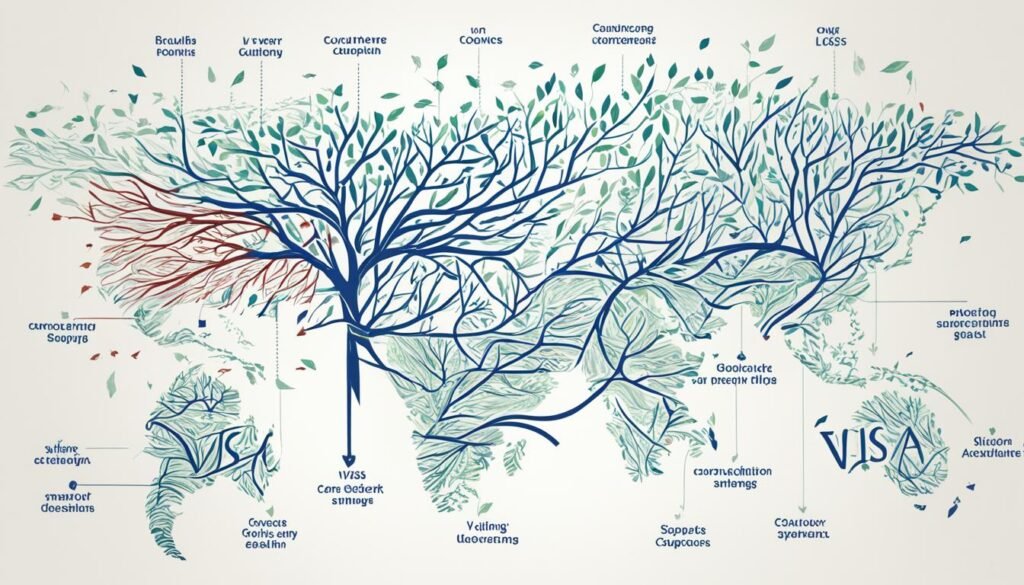Common Requirements for Applying for Work Visas in English-Speaking Countries

As a young professional, I once felt both excited and nervous about getting a work visa for an English-speaking country. The idea of exploring new cultures and opening doors to international opportunities was thrilling. Yet, understanding the visa requirements seemed overwhelming at first.
But with hard work and a clear grasp of what was needed, I successfully applied for my visa. If you dream of working legally in places like the United States, Canada, United Kingdom, Australia, or New Zealand, you need to know the rules and what documents you'll need. This guide will help you understand the process and move forward with your international career goals.
Work Visas Requirements in English-Speaking Countries
Applying for a work visa in an English-speaking country has certain rules. Work visa eligibility means having a job offer from an approved employer. You also need the right education and work experience. Plus, you must know English well and sometimes, the employer must sponsor you.
Eligibility Criteria for Work Visas
The rules for work visas differ by country and type. They focus on your skills, qualifications, and how you can help the host country's workforce. You might need to show:
- A bachelor's degree or higher in a relevant field
- Experience and skills for the job you want
- An employment-based immigration sponsorship from your future employer
- Proof of language proficiency, like results from language tests
Required Documents for Work Visa Applications
When applying for a work visa, you'll need to gather several supporting documents. These include:
- A valid passport
- A job offer letter or employment contract from an approved employer
- Educational certificates and transcripts
- Detailed proof of work experience
- Financial statements showing you have enough money
- Criminal background checks
- Medical examination results
You might need more documents depending on the visa type and the country's rules. This can help make your application stronger.
"The majority of British people are kind and nice despite the actions of far-right groups."
Applying for a work visa in English-speaking countries can be complex. Aspiring workers must understand various work visa categories and their requirements. It's key to know the different work visa categories, from temporary to permanent residency options, for a successful application.
Understanding Visa Categories and Types
Temporary work visas are for short-term jobs, like seasonal work or special projects. They have a limited time and often need an employer's support. Permanent work visas, however, allow for long-term or even permanent work, perfect for those wanting a lasting career abroad.
- Temporary work visas: These visas are for short-term jobs, like seasonal work or special projects, and often need an employer's support.
- Permanent work visas: These visas allow for long-term or even permanent work, ideal for those wanting a lasting career abroad.
It's important to understand the visa application process and each visa type's details. Applicants should review the requirements, gather needed documentation, and prepare for visa interviews. This will help increase their chances of getting the work visa they want.
"The key to a successful work visa application is understanding the various categories and types of visas available, and then meticulously following the application process and requirements for the specific visa you are seeking."
Employment Sponsorship and Job Offers
Getting a job offer from an approved employer is key for many work visa programs in English-speaking countries. Employers must show they've tried to hire local workers or that the job can't be filled by someone already in the country through labor market testing. The job offer and employer sponsorship are vital in the visa application process. They prove the applicant can work in the host country.
To get a work visa, you need a job offer from an employer who will sponsor your visa. This employer sponsorship means the employer shows they've looked for local workers and couldn't find one for the job.
Job ads for visa applications and labor market testing differ by country and visa type. It's important for applicants to check the specific rules for their destination and visa.
"The job offer and employer sponsorship play a crucial role in the work visa application process, as they provide evidence of the applicant's ability to contribute to the host country's workforce."
Language Proficiency Requirements
To get work visas in English-speaking countries, you must show you're good at English. You'll often need to provide scores from tests like the IELTS or TOEFL. These tests check how well you speak English.
Proving English Language Ability
The level of English you need can change based on where you want to work and the visa type. It's important to check the language requirements for your visa. This ensures you can work in English-speaking countries and fit in well.
The IELTS test checks how well you speak English, with scores from 1 to 9. Many visas for places like Australia, Canada, and the UK need a score of 6.0 to 7.0. This shows you can talk English well enough for work.
If you want to know other articles similar to Common Requirements for Applying for Work Visas in English-Speaking Countries You can visit the category Apply Now.



Leave a Reply